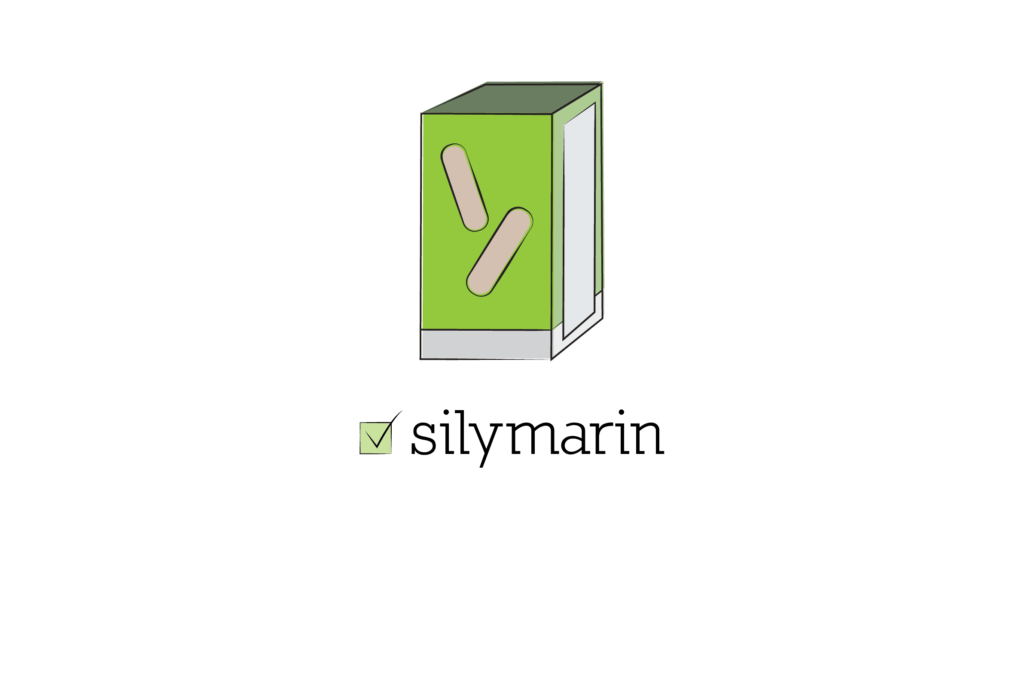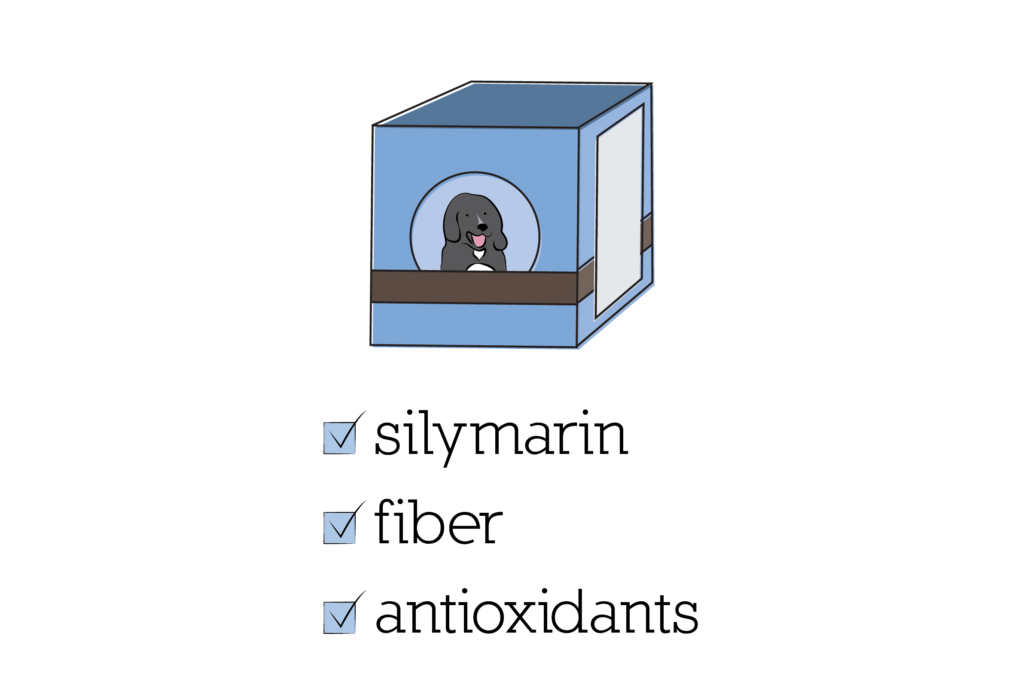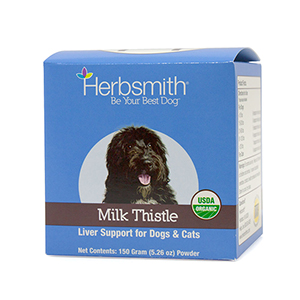
Photo by @theboxerandthebear
Steve the dog loves rolling in the grass- scratching his back, then his chin, not forgetting a onceover on the booty. He’s just busy being adorable and you’re sighing because you know Steve is an allergy sufferer. When seasons change, there’s an influx of pollens, grasses and other harmless allergens. The liver, already bogged down with daily toxins and free radicals, overreacts to these non-threating intruders to protect itself. Normally, these aren’t worth attacking but the liver is on overdrive trying to filter out foreign bodies. He scratches himself incessantly, pants, and has a greasy coat. Over-the-counter medications have become the norm but because his symptoms are so bad he’s prescribed corticosteroids too.
While Steve’s allergy symptoms have diminished, he’s also been taking these drugs on a daily basis and over an extended period of time which come with their own list of side effects. Steve’s appetite is huge, he’s always thirsty so he urinates more frequently, is restless and agitated at times. He’s even had instances of aggression, which is so unlike him. The side effects of steroids are taking a toll of poor Steve.

As a concerned pet parent, you and Steve make a return trip to the veterinarian. Because Steve’s body is already trying to process daily toxins and free radicals, the addition of antihistamines and steroids (which we know are hard on the liver) has taken a toll. There is good news though! The liver is outstanding at rejuvenation and even better news, there’s a natural way to help it recover faster. The veterinarian prescribes milk thistle because of its ability to detoxify the liver, repairing the damage that’s already been done and protecting it from future damage by eliminating the accrued toxins. With a repaired and protected liver, Steve’s body can better-process toxins that are introduced to the body (yay, Steve!).
So, Steve feels better, and you feel better about Steve feeling better – all is well. Next allergy season you vow to be prepared. You know Steve was prescribed 225 mg of Milk Thistle daily, so the hunt is on. You find us here at Herbsmith (well done!), start reading and then scroll down to “add to cart” when the feeding instructions catch your eye. You’re thinking… hold the phone, pump the brakes, these cats are crazy! They’re recommending 2,200mg of milk thistle per DAY?! Call the pet police.
Why would we recommend 2,200 mg/day when a veterinarian recommended 220 mg for the same dog? Whyyy?
It’s actually quite simple. Two different forms of milk thistle are being referenced: whole ground seed and concentrated extract powder. When your veterinarian recommends 220mg, he or she is referring to concentrated extract powder, not the whole ground seed which is what our milk thistle product is. Extract is a very concentrated form of the active ingredient, which in milk thistle’s case, is silymarin.
So how exactly does powdered milk thistle extract come to be? Let’s break it down.

- Step 1: They start with 5lbs of whole ground milk thistle seed. The whole ground seed is boiled in hot water, 2-3x over. More water is added each time to concentrate the active ingredient, silymarin.
- Step 2: Then, any cellulose fiber that doesn’t break down is discarded (what a waste).
- Step 3: A dark soup is leftover which is dehydrated. This makes 1lb of extract powder.
- Step 4: That extremely concentrated milk thistle powder extract is put into capsules.
This is what you’re buying when the vet recommends 220mg milk thistle extract capsules.
What’s important to remember is you need a lot less powder to get the same amount of active ingredient (silymarin) in extract form. At least five times LESS powder, in fact.
That equates to a 5:1 extract to whole ground seed ratio. Put more simply, Herbsmith’s Milk Thistle has 5x more volume than concentrated extract because the whole seed is utilized. Both have comparable amounts of active ingredient.
Why NOT extract then? As a consumer you may ask, “why choose whole ground seed if there’s the same amount of active ingredient and less powder to give my dog?”
Concentrated extract wastes parts of milk thistle that are still beneficial to Steve and dogs like him. Not using the entire seed omits additional beneficial vitamins, minerals, and antioxidants found in a whole seed. Think about it this way. When you need vitamin C you just eat an orange. A whole orange has other health benefits as well. It provides fiber, A & B vitamins, copper and potassium in addition to the vitamin C. You could also take a vitamin C tablet. Yes, you’re getting the necessary vitamin C from the concentrated tablet but you’re missing out on the other sources of vitamins and minerals a whole orange provides. That’s why we prefer to grind our milk thistle instead of extracting it into a concentrated powder. At Herbsmith, our milk thistle is quite literally ground-up milk thistle seed.
This is Herbsmith’s process start to finish.

That’s 100% it. Steve not only gets an adequate amount of the active ingredient, silymarin, but he also gets fiber and antioxidants, that just happen to dampen any of the harshness of the active ingredient. It’s a win-win for Steve!
Other Brand’s Milk Thistle:
Concentrated Extract Capsules

Herbsmith’s Milk Thistle:
Ground Whole Seeds

Comparing Dosages
Knowing that whole ground milk thistle seed has more health benefits than concentrated extract (why we use all of it), and that using the entire seed means there’s more volume, it makes the dosage recommendations much less intimidating, especially when daily dosages are compared side-to-side. It’s much more evident, in fact, that there’s simply a 5:1 extract to whole ground seed ratio.

A 30lb dog, for instance, would receive 1100 mg of our whole ground seed per day. That would equal 220 mg of the other brand’s extract because there is a 5:1 extract to whole ground seed ratio. Both still contain 34 mg of the active ingredient, silymarin.
For those self-proclaimed math geeks curious about how we reached these numbers, this is how we calculate the amount of active ingredient in our whole ground milk thistle seed.
- There is approximately 3% silymarin (based on the dry weight of our Milk Thistle) per serving size (1/4 tsp).
- A ¼ teaspoon contains 550mg of our pure, organically grown Milk Thistle
(550mg = ¼ teaspoon)
- There is approximately 3% silymarin (based on the dry weight of the product) per 1/4 tsp.
- So, take 550 mg and multiply by .03 (the amount of our active ingredient, silymarin)
550x.03=16.5
- There would be about 16mg to 17mg of silymarin in each ¼
Put more simply, and so you have a quick point of reference:
¼ teaspoon = 550mg of ground milk thistle = 16.5mg of silymarin
The processes, tables, and math aside, the key takeaways are really quite simple.
Herbsmith’s Milk Thistle has 5x more volume than concentrated extract because it’s a whole ground seed but still has a comparable amount of the active ingredient.
- Whole ground milk thistle seeds have more health benefits than the concentrated extract, including vitamins, minerals, and antioxidants. That’s why we prefer to offer whole ground milk thistle at Herbsmith.
Really, whether using whole ground seed or concentrated extract (though you know which one we prefer), milk thistle is going to benefit your dog!

Herbsmith Milk Thistle
Milk thistle helps to maintain normal, healthy liver function by supporting the body from exposure to heavy metals or environmental toxins. Milk thistle also helps with healthy waste elimination from the body and supports normal hepatic function. It has also been shown to support the metabolic functioning of the liver and normal cleansing of the liver from impurities.




9 Responses
I just wanted to say that I found your Milk Thistle page to be very informative/valuable. Thank you for that, I am not using it for a pet, it’s for myself. Cheers! .. from Van, Canada.
Is your milk thistle organic? I didn’t see any mention of this.
Hi Carla,
Thanks for reaching out! Yes, Herbsmith Milk Thistle is 100% USDA organic, ground milk thistle seed free from GMOs, pesticides, additives, irradiation, or preservatives.
Hi, I just received my purchase of the milk thistle that you offer.
The reason I purchased it, and am hoping this will work well for what I wanted it for. I had given my dog Nexgard on the recommendation of my veterinarian and they said it was great and they had so many customers that used it. I trusted it would be ok for my dogs. I purchased it and gave them a dose. Then…(so stupidly) I then started reading the flyer that came with it and it talked about seizures. I thought why would that be safe if it had that warning…..then I went onto google and just about came unglued. I gave poison to my dogs that could cause them seizures or nerve damage and many other side affects. I became emotional and decided I had to find something to help get this stuff out of their system. This was the thing that seemed like it would do it faster and better than anything I could find. So I hope it helps them and cleans the toxins out of their body.
I’m wondering because I don’t see anything, also, are there any side affects to this milk thistle….like does it cause diarrhea or vomiting or anything like that. I didn’t see any information on that kind of thing at all.
Thanks so much.
Hi. I’m so lost. My 9 yo dachshund baby girl suddenly started to be very shaky (walking, etc)) Went to vet. Her liver values are off the chart, has mammary spreading lumps. (I had her checked prior for these & was told not to worry). Gall bladder isn’t right & now they said she has IVDD. I have always fed her raw with no red meat trimmed of skin & no fat, watched the fat content of all she ate. I have experience with IVDD treatment; but since She has an enlarged liver, she can’t take all the necessary or usual drugs for it. She is on kennel rest. She eats & drinks well. Potties & drinks; but seems to be getting worse. Can I give her the milk thistle on top of all her other meds? I so afraid I’m going to lose her or I’ll have to make that decision because she is suffering so much.
Hi Gloria,
Thank you for sharing. You are a stellar pet parent! Milk Thistle would be a terrific addition as it promotes normal liver function and acts as a protectant and detoxifier. It helps the body flush out/filter harmful toxins from medications, along with free radicals, heavy metals, and other environmental toxins. It also boosts the normal function of the kidney, pancreas, and gall bladder.
Please reach out to us at info@herbsmithinc.com if you have any more questions. We’re here to help!
Hi Patrick,
Thank you for writing in! If a pet were to eat the whole bottle accidentally, it could cause GI upset as overeating anything could. But at near recommended levels there should be no negative side effects.
Do you give it to your dog with or without food?
Hello Kathy! You can sprinkle it right onto their daily meals or if the prefer you can put it into their favorite treat or meatball. 🙂
Comments are closed.